Business
/ArcaMax

Sphere hints at higher ticket prices for future Las Vegas events
Sphere Entertainment Co. continues to lose money, but executives Thursday outlined how it plans to achieve profitability in its first-quarter earnings call.
Executive Chairman and CEO James Dolan said a combination of initiatives is underway that he hopes would reverse current trends.
Without naming acts, Dolan said the pipeline of ...Read more
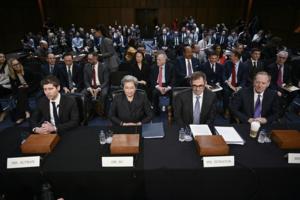
Microsoft's Brad Smith, other tech execs give Congress AI wish list
Tech leaders representing four major players in artificial intelligence appeared before Congress on Thursday, urging looser regulation and heavier investment in energy to support the technology's growth.
Members of the Senate Committee on Commerce, Science and Transportation probed Microsoft President Brad Smith, OpenAI CEO Sam Altman and ...Read more

Warner Bros. Discovery breakup speculation ramps up after weak earnings report
LOS ANGELES — Warner Bros. Discovery posted disappointing first-quarter results despite growth in streaming.
But the stock rose Thursday on renewed speculation that the company will spin off its slipping cable channels.
Late last year, David Zaslav-led entertainment Warner Bros. Discovery divided its business into two divisions to separate ...Read more
Rocket posts net loss in first quarter
Rocket Companies posted a first-quarter net loss of $212 million on net revenue of $1 billion, down from first-quarter net income of $291 million it recorded a year ago, the parent company of mortgage lending giant Rocket Mortgage reported Thursday.
Rocket Companies' net revenue of $1.0 billion during the first quarter is a slight decrease from...Read more

Trump cuts British auto tariffs to 10%, hints at future deals
WASHINGTON — The United States has reduced tariffs on United Kingdom-made vehicles from 27.5% to 10%, providing import tax relief for a small but notable portion of the domestic auto market.
The reduction applies to the first 100,000 vehicles the United Kingdom sends stateside, Commerce Secretary Howard Lutnick said Thursday morning in the ...Read more

Trump cuts British auto tariffs to 10%, hints at future deals
WASHINGTON — The United States has reduced tariffs on United Kingdom-made vehicles from 27.5% to 10%, providing import tax relief for a small but notable portion of the domestic auto market.
The reduction applies to the first 100,000 vehicles the United Kingdom sends stateside, Commerce Secretary Howard Lutnick said Thursday morning in the ...Read more

Despite Trump's criticism, Powell keeps Congress on his side
Under relentless attack from President Donald Trump, Jerome Powell needs all the allies he can get — and he has plenty in Congress, including among Republicans who show little appetite for ditching the Federal Reserve chief.
Collectively, GOP lawmakers have endorsed almost every other economic idea that second-term Trump has put forward. But ...Read more
Real estate Q&A: Are the renters next door breaking the rules to control their dogs?
Q: A family recently rented the house next to ours in our community association. They have several dogs and attached a temporary fence to our permitted wooden fence to form a corral for their dogs to stay outside all day and bark. Are they allowed to attach to our fence without permission? Is there anything we can do about the noise? —Caroline...Read more

Commentary: The calculated dismantling of minority business opportunity in America
A recent executive order to dismantle the Minority Business Development Agency (MBDA) is another policy change in America's long history of systematically suppressing minority economic advancement. This decision, which threatens to unravel decades of progress in fostering minority entrepreneurship, demands immediate attention and action.
Since ...Read more
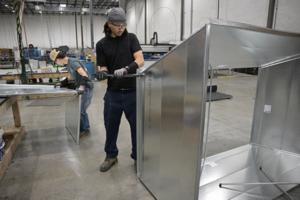
'Made in USA' gives edge to Denver manufacturer, but doesn't spare it effects of tariffs
Bringing manufacturing back to the U.S. is one of the prime reasons behind the Trump administration’s tariffs, but Hercules Industries is ahead of the game. The Denver company’s heating, ventilation and air conditioning products have been made in America since its start in 1962.
Roughly 95% of the steel Hercules uses is made in America. And...Read more

Zillow forecasts San Diego home values to drop for the first time in years
Zillow has broken from the pack to say San Diego County home values could decrease over the next year.
Home values in San Diego County will drop 1.1% by March 2026, Zillow said in its latest Home Value Index. While the decrease is small, it’s notable because no other major forecasters have said home prices, or values, would drop, and it’s ...Read more

Is Las Vegas becoming Los Angeles 2.0?
By 2021, as the COVID-19 pandemic swept across the globe, Las Vegas-based luxury real estate broker Ivan Sher started noticing a distinct migration pattern from California’s affluent neighborhoods to Las Vegas.
“What I think pushed people over the edge” in California was government mandates that impacted them and their children in school,...Read more

Target CEO acknowledges silence from leadership has created uncertainty among workers
Target CEO Brian Cornell acknowledged in an email to staff a gap in communications over the past few months that has led to uncertainty.
The Monday email acknowledged that it has been “a tough few months” between the retail economy “headlines, social media and conversations that may have left you wondering.”
Cornell said Target’s ...Read more

CBS chief George Cheeks pledges to support team amid chaos and Trump threats
With Paramount Global's sale stuck before federal regulators and a potential settlement looming with President Trump in a dispute over CBS News' "60 Minutes," Paramount co-Chief Executive George Cheeks on Wednesday sought to project a sense of business as usual.
Cheeks and CBS Entertainment President Amy Reisenbach unveiled the network's new ...Read more
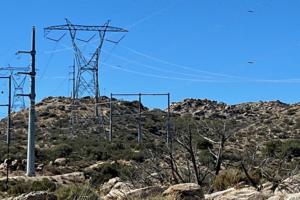
California's power grid looks steady heading into summer but risks remain
California energy officials say the chances of major power outages are relatively low as the state heads into what could be another broiling summer, but they are quick to add that any number of variables could upend the outlook.
“Extreme or sudden onset events could still create tight grid conditions, especially if they are coincidental with ...Read more
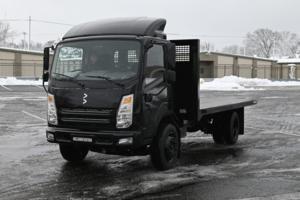
EV maker Bollinger Motors, low on cash, will be run by court-appointed receiver
Bollinger Motors Inc., the once high-flying Oak Park, Michigan, electric truck maker founded a decade ago, is now struggling to make payroll and a court-appointed receiver is set to take control of its daily operations and remaining assets.
U.S. District Judge Terrence Berg on Wednesday said the company would go into receivership amid its ...Read more

Disney planning theme park resort in Abu Dhabi
Walt Disney Co. is planning a theme park resort for Abu Dhabi in the United Arab Emirates, the company confirmed Wednesday. The attraction will be on the waterfront of Yas Island, already a leisure travel destination.
The new resort will be built, financed and operated by Miral, an Abu Dhabi-based developer. Walt Disney Co. and Walt Disney ...Read more
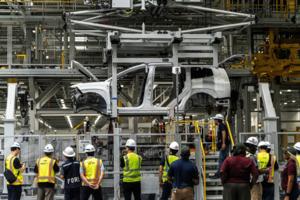
Georgia Hyundai factory fined for violating state wastewater rules
Georgia environmental regulators have fined the hulking Hyundai electric vehicle factory near Savannah $30,000 for violating state wastewater disposal rules.
The $7.6 billion facility, known as the Hyundai Motor Group Metaplant America, opened in October and is the largest economic development project in Georgia history. The plant manufactures ...Read more
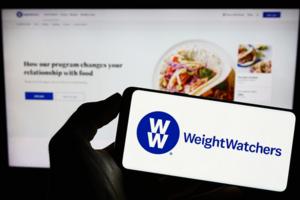
WeightWatchers Files Bankruptcy After Growth in GLP-1 Drugs
WeightWatchers, known for its diet programs once endorsed by celebrities including Oprah Winfrey, has filed for bankruptcy after struggling to compete with drugs like Ozempic and the rise of TikTok fitness influencers.
The company — which rebranded to WW International Inc. — filed a prepackaged Chapter 11 petition to execute a lender-backed...Read more

Windy City to Sin City: Robot manufacturer moves headquarters to Las Vegas
A robot manufacturer has moved its headquarters from the Windy City to Sin City.
AAA20 moved its headquarters from Chicago to Las Vegas in late April. It specializes in manufacturing robots for factories, to minimize hard labor and increase productivity.
The company has a 9,000-square-foot facility off Pilot Road near Harry Reid International ...Read more
Popular Stories
- Motormouth: Does costly repair on newer car seem right?
- Sphere hints at higher ticket prices for future Las Vegas events
- Microsoft's Brad Smith, other tech execs give Congress AI wish list
- Georgia Hyundai factory fined for violating state wastewater rules
- Real estate Q&A: Are the renters next door breaking the rules to control their dogs?










